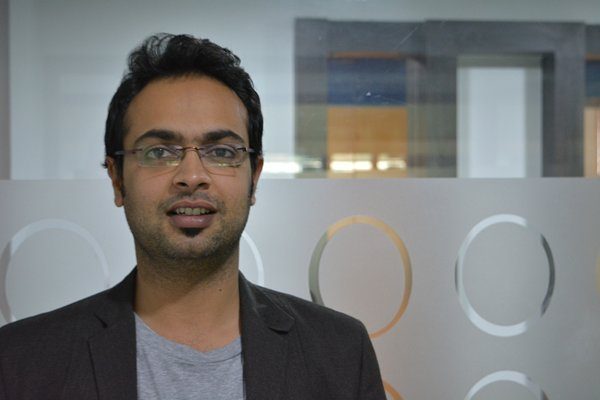Tapan Dixit CEO and Co-founder at Talespin is an adamant follower of first name- culture. Talespin aims to change the shopping experience of customers. It aids brands in customer conversions. Furthermore, Talespin provides a delightful experience to customers by finding the right product for them.
Tapan completed his MBA from Narsee Monjee Institute of Management Studies, Mumbai in 2010. He has worked in several sectors, including IT, Telecom, Beverages, and FMCG. He states that only in the IT sector, a majority of people follow the first-name culture. Initially, it was a pleasant surprise to see how employees addressing each other. This first-name culture creates a friendly environment.
Tapan shares, if we know we are right. We will never try to change. Improvements happen only when our mind and soul identify a problem. Sir/Madam is in our genes. It automatically debuts in our conversation with seniors or elders.
To bring a change in this custom, we should first understand it as false or misunderstood. Once we recognize Sir/Madam culture as awry, we will adopt the right practice. This transmission should commence from within.
He asserts, referring people as Sir/Madam has become a domino effect. In general, it is a human tendency to follow the crowd. If I take a stand of addressing my seniors by their name, people get conscious. Will it impact my appraisal? What will people, who are following Sir/Madam culture, think of me? These questions baffle in our minds. So people need to know ‘It is better to walk alone, than with a crowd going in wrong direction’. It is essential to spread this cause that Sir/Madam is not a requisite anymore.
Tapan speaks — I was amazed to see the change in customer care industry, which is highly influenced with Sir/Madam pronouns. Recently, there has been a shift from so-called Sir/Madam attitude to considering the last name with prefixes such as Mr., Ms. or Mrs. Moreover, he indicated that respect can be expressed through various ways, including tone, pitch, body language, presentation, etc. These expressions can be molded to render gratitude towards someone. Therefore, it is essential to include Sir/Madam in our daily routine so frequently.
Speaking on bureaucracy, he adheres to that corruption is a huge crunch, and its eradication will take several years. Therefore, this No Sir No Madam attitude can induce in sense of answerability in the government-run offices.
Officers managing public services should not display authority, rather focus on their duties. Civil servants sometimes use Sir/Madam to reflect power and influence people. Thus, the human-resource policies should be revised to adhere to first-name practice.
Sir/Madam begins from school and graduation level. “I do not understand why a 1st year student needs to address a person just one year senior to him as Sir.” This has been the culture of India for decades. However, somewhere we need to restructure the education system to develop professional India right from school days.
Tapan suggests that there should be training sessions for top management to imbibe the value of No Sir No Madam concept. The speakers from IT sector should be invited to share the benefits of using first name in communication. He further adds, IT professionals can portray the environment at their workplace where everyone gets equal respect. Through their experience, people can picture the value of No Sir No Madam culture.
Overall, Tapan concludes — it may be difficult to switch cultures in one day. However, Educating people about the No Sir No Madam cause will hopefully bring a change in the long run.







Add comment